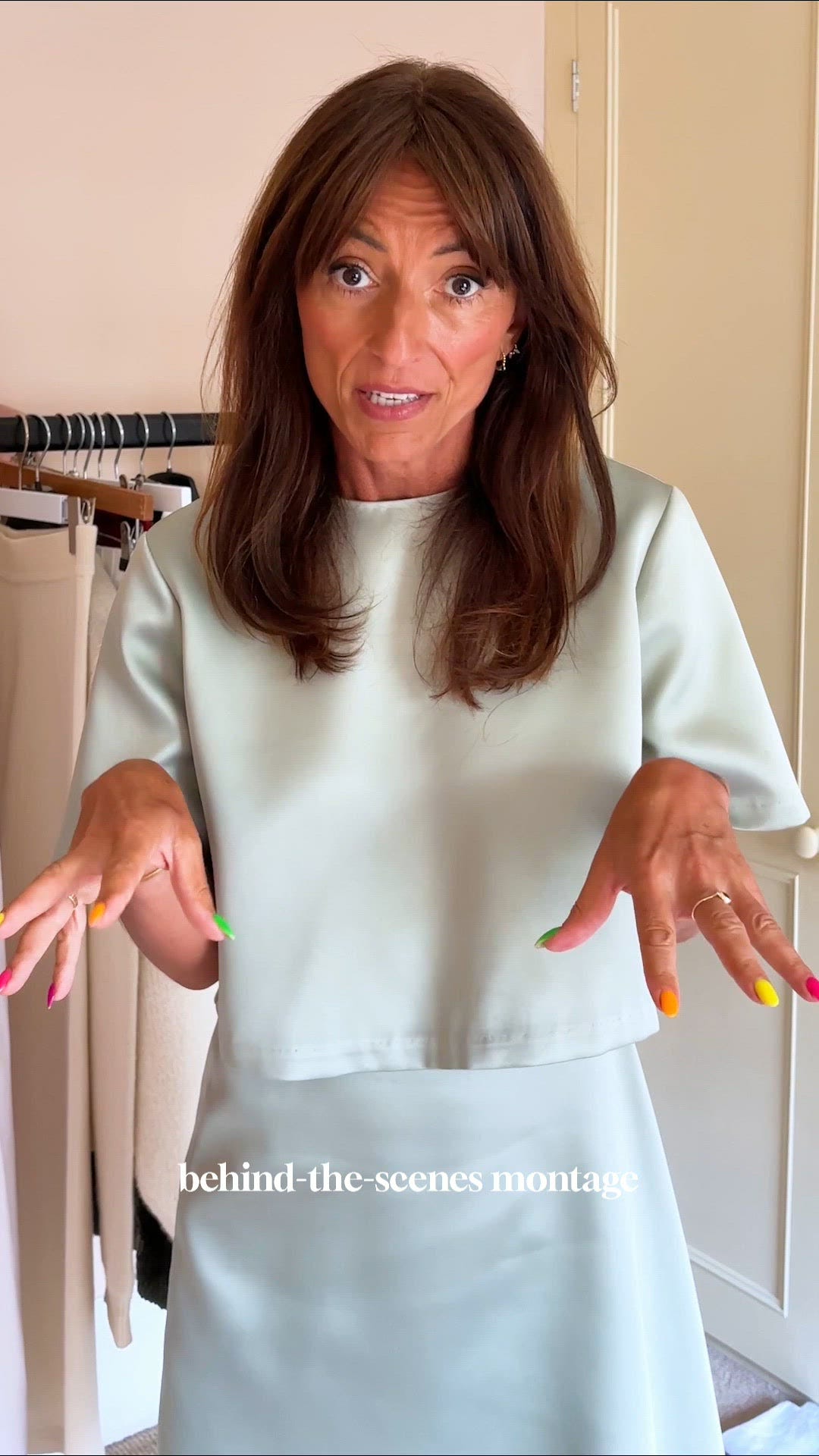Sex. It’s everywhere, lurking in the shadier corners of the internet, sprawled across brightly lit ads and TV screens, and taking up column inches in newspapers. Are you having enough, we’re asked. Are you doing it right? Should you be spicing it up? It’s enough to make us want to pull on our granny pants and lie down in a dark room. But there’s more. Research suggests there’s a far greater prize for most of us than passion: intimacy.
The results of Good Housekeeping’s landmark Gentelligence survey show that just 12% of readers considered a good sex life a priority – fidelity and laughter ranked far higher.
‘The fact that GH women prize emotional intimacy is no surprise,’ says chartered psychologist Dr Sandra Wheatley. ‘Emotional intimacy is something that can be maintained beyond the waning and waxing of physical attraction. If you have good communication, you’ll survive all the obstacles that life throws at you.’
What to read next
Other relationship studies bear this out. In a recent survey of more than 6,000 men and women aged between 45 and 75, published in The Journal Of Sexual Medicine, 93% said emotional intimacy was more important than physical.
But take heed: nurturing intimacy also takes work, especially in long-term relationships. In fact, research shows that, instead of becoming closer over time, couples are more likely to experience a loss of both physical and emotional connection. And it’s often the latter that’s missed most keenly.
Jane*, 48, a teacher, says of her relationship: ‘We’ve been together 16 years and have had a tough time recently with illness and bereavement. My partner started confiding in a woman at work instead of me, and I stopped trusting him. I don’t crave sex – I crave feeling loved.’
For Isabel*, 58, feelings of isolation within her marriage stem from a breakdown in emotional closeness. ‘We do still have sex every so often, but I feel very alone. When we watch television, we sit at opposite ends of the sofa. We focus almost entirely on the transactional side of being together: kids, mortgage, job worries.’
Modern life throws plenty of obstacles in the way of intimacy, but Ita O’Brien, author of new book Intimacy: A Field Guide To Finding Connection And Feeling Your Deep Desires, says it can be reclaimed at any stage. ‘Intimacy isn’t just about those moments when you first get together and can’t keep your hands off each other,’ she says. ‘It’s about maintaining that connection overtime. And it’s first and foremost about understanding ourselves.’
Surprisingly, Ita isn’t a psychologist or sex therapist. She’s a leading intimacy coordinator for film, TV and theatre, choreographing sex scenes in shows such as Normal People and I May Destroy You. Now, at 60, she wants to help ordinary couples build intimacy using four rules she’s developed for safe yet close on-screen sex: communication, consent, choreography and closure.
‘The guidelines I created are about self-respect, mutual respect and open communication,’ she explains. ‘Agreement and explicit consent on set help everyone feel heard, seen and empowered.’ And, she adds, ‘These principles are justas important off-screen.’
At this point, you might wonder what choreography and consent have to do with real-life relationships. ‘Consent is how you express your boundaries, wants and needs,’ explains Ita. ‘And “choreography” is really about supporting each other and making time for your intimate life – so it actually happens.
‘There are many different types of intimacy in a relationship,’ she continues. ‘Emotional, physical, intellectual, spiritual and the intimacy of shared experiences. Nurturing all of them creates a truly rich, connected life together.’
So, how do you get there? According to Ita, it’s the small, everyday moments that matter most– walking in nature, having honest conversations and, yes, reaching for your partner’s hand on the sofa…
4 steps to a happier, sexier, more intimate relationship
1. Communication
What do you really want from your relationship? ‘So many of us are used to running around, giving to everyone else,’ says Ita, ‘but listening to yourself and asking for what you want is a joy – and a gift – to those around you.’ You might have been going through the motions, doing the things and behaving in the way you think your partner wants, rather than doing what actually makes you happy.
But, says Ita, ‘authenticity and honesty are fundamental to intimacy.’
Once you’ve thought about it, it’s time for an honest conversation. Ita advises speaking for two minutes each about what you’d like more of. It might not be easy, but as a stepping stone to more intimacy, it’s crucial. And as intimacy builds, it’ll be easier to talk about your sex life.
2. Consent
The next step is to agree on boundaries. The word might make you squirm, but consider what it really means. Establishing boundaries includes where you do and don’t like to be touched, which sexual activity feels right (or doesn’t) and what your partner is comfortable with.
It might not even be about your sex life – perhaps you hate public displays of affection, but would want to be welcomed home with a hug and a kiss. Talking about these things can be challenging, Ita admits, and requires courage. But, she says,‘what I find joyful about consent is that it starts with listening to yourself and then sharing that with someone else.’
Asking for what you need is an act of self-care.
3. Choreography
This has two parts, says Ita.
‘First, it’s about making time.’ We often expect passion to strike spontaneously, but planned moments can be just as powerful. ‘When I began working on sets, people said there wasn’t time to rehearse intimate scenes. I insisted. Relationships are no different – you have to prioritise time together.’
And once you’ve made that space, what do you do with it? Perhaps you’ve been together for decades; maybe your body has changed.
Choreography means asking for what fits now. Maybe that’s a foot rub, a hug or simply lying in bed talking.‘There are no “shoulds”,’ says Ita. ‘Intimacy is what feels right for you.’
4. Closure
On set, Ita encourages actors to acknowledge the time they’ve spent together before moving on. In relationships, she says, the same practice helps nurture and protect connection.
‘When you’ve shared time, intimacy and joy – even some thing as simple as a walk while holding hands – acknowledge that. Share a hug before stepping back into work mode or Mum and Dad mode.’ In doing so, you’re giving a nod to your intimacy, reminding you both that, in the rush of life and your other responsibilities, this part of your relationship matters, too.
Intimacy: A Field GuideTo Finding Connection And Feeling Your DeepDesires (Ebury Press) by Ita O’Brien is out 5 June














